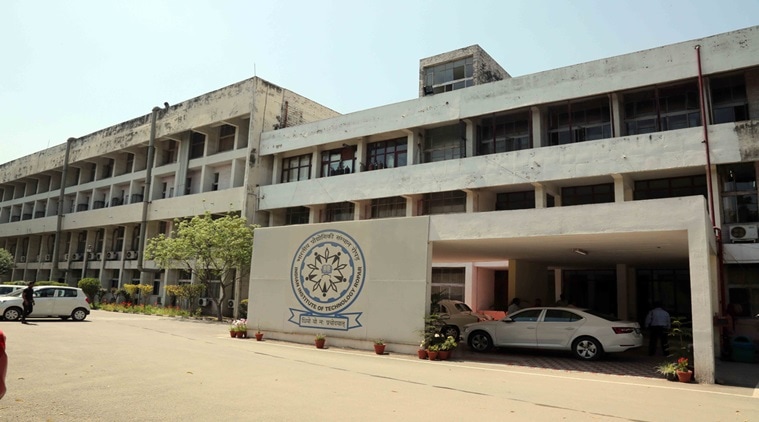 The director of IIT-Ropar explained that the course has been designed to cater to medical professionals who seek to participate in the field of research, without being burdened solely with clinical consultations. (File)
The director of IIT-Ropar explained that the course has been designed to cater to medical professionals who seek to participate in the field of research, without being burdened solely with clinical consultations. (File)
Indian Institution of Technology (IIT) Ropar and Post Graduate Institute of Medical Education and Research (PGIMER) are designing a MD and PhD dual degree programme, which the students of both the institutions will be able to pursue.
“For instance, a student who has completed his or her MBBS will be able to pursue his MD from PGI and his PhD from IIT-Ropar. The student will be able to undertake both the degrees, simultaneously,” said Director of IIT-Ropar, Sarit Kumar Das. He added, “In a PhD programme, a student has to do a thesis and conduct research, and to complete an MD degree also you have to do a one-year long thesis. So, here, the students will not have to do an additional MD thesis, but they will conduct an integrated research thesis within the PhD programme.”
Further, Das explained that the four preparatory courses required for a PhD will also be waived off in the integrated course as the students will be able to pursue those courses in the MD degree. “Thus, in five years, the students will be able to get a dual degree that he or she would otherwise take at least seven years to complete,” he said.
In an interview with Newsline, the director of IIT-Ropar explained that the course has been designed to cater to those medical professionals who seek to actively participate in the field of research, without being burdened solely with clinical consultations. “Such models of dual degree education for medical professionals and research exist in countries like the USA, where Harvard Medical School has a tie up with MIT. However, not many such courses exist in India, where an organic tie-up can be formed between two such institutes in order to advance medical research and health technology,” said Das.
PGIMER Director Dr Jagat Ram said, “We are planning to undertake many research collaborations with IIT-Ropar, and this degree will allow for such a collaboration to exist even more concretely.”
He added: “We know about the patient, and they have more expertise on the technological aspect of biomedical research. We have existing MoUs for certain research collaborations with IIT-Ropar already. As for the course, we are eager to initiate it, but we need to get a few approvals from educational boards within PGIMER to make it a reality soon.”
Setting up the MD and PhD dual degree course is one of the recent initiatives taken by the IIT-Ropar to increase its collaborations with medical professionals, doctors and hospitals, to productively contribute to the advancements in the field of healthcare. On the state of research in the field of medicine, Das said, “The problem with medical institutions and hospitals is that they are running in such a way that it is difficult for doctors to find time to conduct research. The other issue is that institutes that are doing biomedical research are currently not collaborating with the hospitals. So, a lack of collaboration has not allowed our medical research to reach the point where it should be at by now.”
He added that the gap in collaboration between research institutions and hospitals could be bridged by ensuring that medical schools become a part of universities, and not separate and isolated educational institutes. “This is also a part of the vision of the New Education Policy, which seeks to integrate all disciplines as part of one university to guarantee an interdisciplinary approach to education,” said Das.
However, the director said that he believes that introducing such intense subjects in institutes like IIT-Ropar will be taking a drastic step which would draw resources and attention away from efforts to strengthen the existing framework of research in subject areas already offered at the institute. This, he argued, is a risk that a young and developing university like IIT-Ropar cannot afford. “However, we have focused on strengthening our Biomedical department and we also plan to start undergraduate courses in Biomedical Engineering. The other initiative is collaborations with institutes like PGIMER and the MD and PhD course tie up was born out of this vision for collaboration,” said Das.
IIT Ropar is also a part of a consortium called ‘Bio X’, a collaboration between IIT-Ropar, IIT-Mandi and PGIMER to conduct medical research and create innovative technology for advancing healthcare in India. “We have developed a few projects already using our own resources, and are beginning research work in other interesting projects together,” added Das. The director said that the ‘Bio X’ consortium is already working on developing low cost MRI screening, cancer drug delivery systems for targeted chemotherapy and integrating artificial Intelligence into screenings and diagnostic practices.
“The motto of IIT-Ropar is to create collaborations which will work on individual problems to bring out original solutions to these problems,” said Das. “The people of this country have the right to ask us what are we doing for them, because we are using public funding. Working on these healthcare solutions will address problems that will directly affect the lives of the people, so this is IIT-Ropar’s vision for the coming years,” concluded Das.